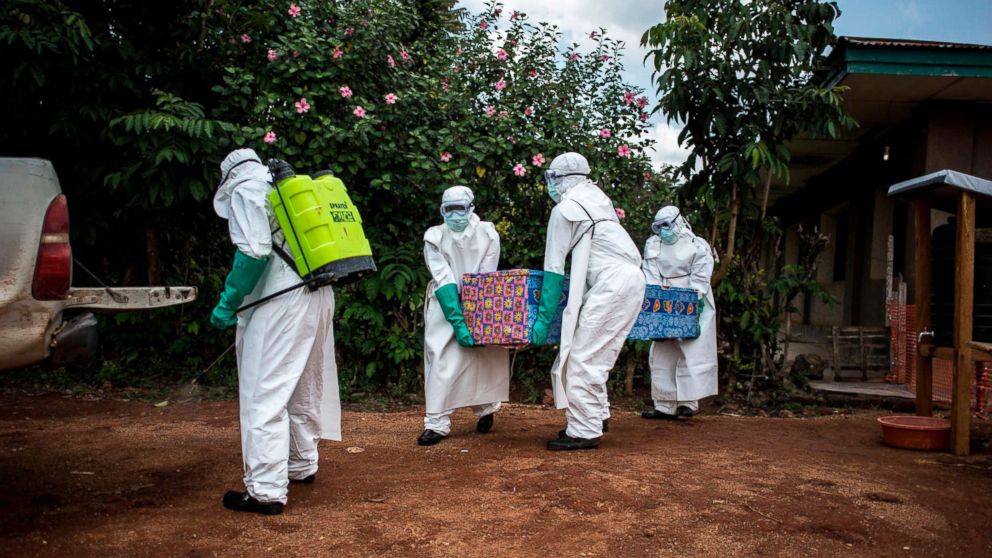
Christmas festive that has just kicked off, many people are planning to visit varies parts of the world, however the travel could trigger the Ebola outbreak to spread from the Democratic Republic of Congo to Uganda, experts fear.
Officials have warned that thousands of families will make the journey over the border to visit family and buy food during the festive period.
But the World Health Organization are concerned this heightens the risk that the killer Ebola virus will also make the same journey.
The ongoing outbreak in the DRC is the second biggest to ever be recorded, with figures showing 319 people in the African nation have died so far.

Countries bordering the DRC, including Uganda, are already on high alert, as health experts said the virus ‘moves closer every day’.
Andrew Bakainaga, a senior WHO official in Uganda, said: ‘Christmas is a particular concern because we know there is a lot of movement as people buy food and visit family.
“We expect the number of people moving across the border might increase from around 300,000 to 500,000 per month.”
Figures have confirmed that 491 people have been struck down with Ebola in the DRC – with a further 51 currently undergoing testing.
The WHO data also revealed the confirmed death toll is 271, as the remaining 48 deaths continue to be thoroughly investigated.

“The next month, over the Christmas and New Year, will be critical to what happens to this outbreak,” Dr Jeremy Farrar, director of the Wellcome Trust, told MailOnline.
The UK-based charity has funded research into one of many vaccines being used to try and stem the outbreak in the DRC
Provinces North Kivu and Ituri remain at the centre of the outbreak, but measures have been taken to secure the safety of Uganda and South Sudan.

The Lhubiriha River lies on the border between the DRC and Uganda, where families, farms and markets are shared.
Less than 40 miles (70km) away, authorities have already confirmed one case of Ebola – which was responsible for a brutal epidemic in 2014.
“This distance keeps on reducing,” said Samuel Kasimba, a local health official in charge of coordinating the effort to stop Ebola from entering Uganda.
On top of this, more than 123,000 Congolese refugees have journeyed to Uganda seeking refuge from communal violence in the past year.
Tracking suspected contacts of Ebola victims remains a challenge in areas controlled by rebels.
Aid workers face the threat of attack from armed groups and resistance from a wary population in a region that had never faced an Ebola outbreak before.